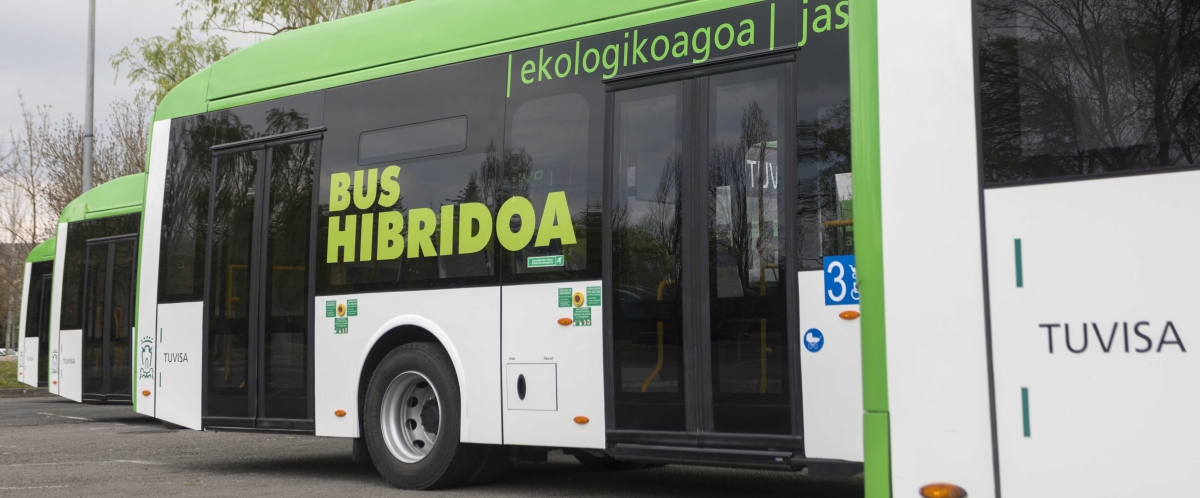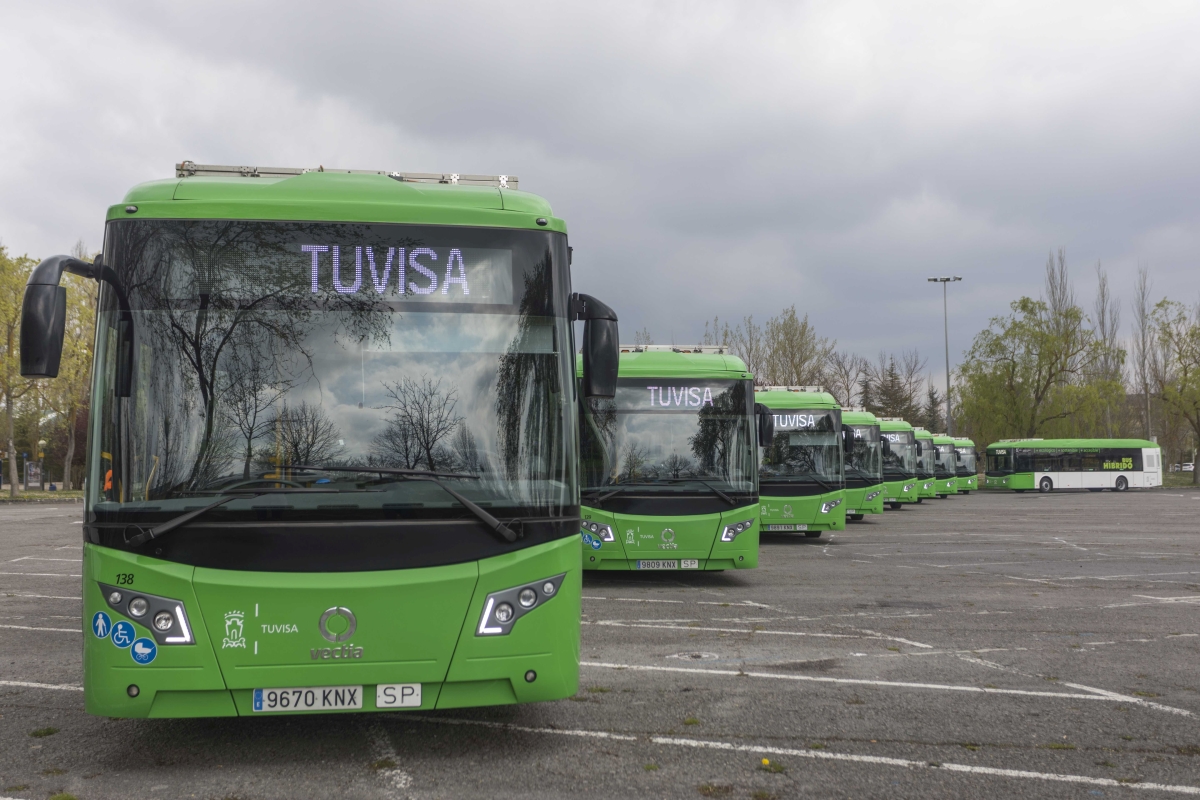Thessaloniki gets ready for its metro launch in November
The underground rapid transit lines have been under construction for almost two decades due to various project delays
 TheMayor.EU logo
TheMayor.EU logo The capital of the Basque country in Spain has made a leap into a more environmentally-friendly mobility
The municipality of Vitoria-Gasteiz has now ten hybrid buses making part of the fleet of the municipal transport company, TUVISA, following this week’s purchase of five new vehicles. These are model 'Veris .12 Hybrid' manufactured by the company Vectia and are similar to the other five that serve Vitoria-Gasteiz since September 2018. The ten buses were purchased through the same contract promoted by the Council of TUVISA, which has received an investment of 3.3 million.

Picture: Ayuntamiento de Vitoria-Gasteiz
Through these vehicles, which are currently being tested and that must be adapted to the IT and management systems of TUVISA, a new step is taken in the renewal of the fleet. Added to the ten buses of 18 meters that took over the streets of the Spanish city in May 2017, these ten hybrids and the thirteen electric buses included in the implementation of the EIB, the capital of Alava will have 33 new vehicles overall. TUVISA has a fleet of 90 units, bringing the renovation to 38% of the same.
The new vehicles allow TUVISA to make an important technological and environmental leap. They are cleaner, modern and accessible. They offer improved service to the citizens, who make more than 15 million trips a year in the buses of the city. The buses purchased are 12 meters long and 2.55 meters wide. They also have two engines, one for combustibles and another electric.
Regarding the improvements that are incorporated in comparison to the old vehicles of the fleet, from TUVISA emphasize that the spaces destined to people with reduced mobility are extended, and so are the spaces for wheelchairs and baby carriages. They will be three instead of two, a unique case in the State. The new units also have improvements such as multimedia screens and USB chargers.

Photo: Ayuntamiento de Vitoria-Gasteiz
Vitoria-Gasteiz is a Spanish city, capital of the Basque Autonomous Community and the capital of the Álava province. It was named European Green Capital in 2012.
Find more about the investment: Ayuntamiento de Vitoria-Gasteiz

The underground rapid transit lines have been under construction for almost two decades due to various project delays

Now you can get your wine in Talence by paying directly in Bitcoin

That’s because the state has to spend money on updating the railway infrastructure rather than subsidizing the cost of the popular pass

Rethinking renewable energy sources for the urban landscape

The examples, compiled by Beyond Fossil Fuels, can inform and inspire communities and entrepreneurs that still feel trepidation at the prospect of energy transition

Now you can get your wine in Talence by paying directly in Bitcoin

The 10th European Conference on Sustainable Cities and Towns (ESCT) sets the stage for stronger cooperation between the EU, national and local level to fast track Europe's transition to climate neutrality.

At least, that’s the promise made by the mayor of Paris, Anne Hidalgo

The underground rapid transit lines have been under construction for almost two decades due to various project delays

At least, that’s the promise made by the mayor of Paris, Anne Hidalgo

Hostal de Pinós is located in the geographical centre of the autonomous region

Despite its church-y name, the district has long been known as the hangout spot for the artsy crowds

Urban dwellers across the EU are having a say in making their surroundings friendlier to people and the environment.

Forests in the EU can help green the European construction industry and bolster a continent-wide push for architectural improvements.

Apply by 10 November and do your part for the transformation of European public spaces

An interview with the Mayor of a Polish city that seeks to reinvent itself

An interview with the newly elected ICLEI President and Mayor of Malmö

A conversation with the Mayor of Lisbon about the spirit and dimensions of innovation present in the Portuguese capital














